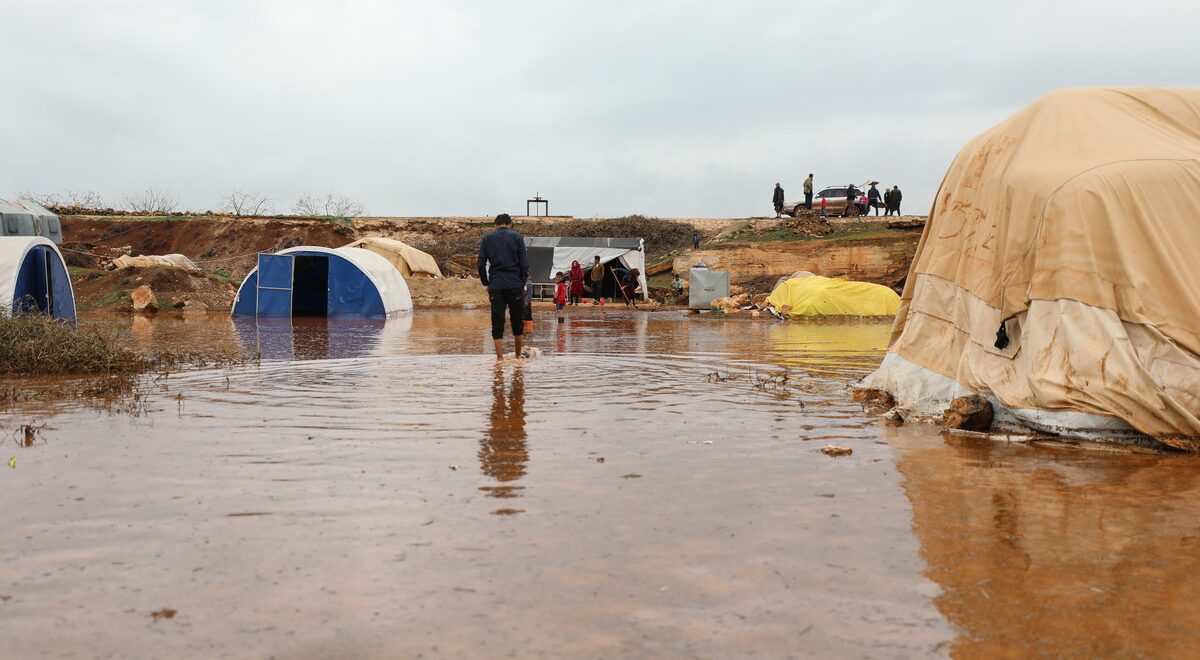ActionAid upsurges preparedness in Western India as more than 74,000 people have been evacuated ahead of severe Cyclone Biparjoy’s landfall today.
India – Rising sea temperatures are leading to the exacerbation of tropical cyclones, resulting in long-lasting and slow-moving intense cyclones in the Arabian Sea, like Cyclone Biparjoy. Loss and damage funding is urgently required to avoid disruption to the lives and livelihoods of marginalized groups, especially women and girls, bearing the brunt of the climate crisis.
With Cyclone Biparjoy scheduled to make landfall on June 15, 2023, communities across coastal regions in Gujarat and Maharashtra in Western India, and in adjoining areas of Pakistan are braced to face the impact. Working with women-led feminist organizations, ActionAid Association India and partners have supported local authorities in the evacuation process of 74,000 people from seven districts of Saurashtra and Kutch regions of Gujarat. The charity is particularly supporting the most marginalized communities, including Dalits, Muslims, tribals, and pastoralists. Additionally, ActionAid Association and its allies are monitoring the temporary shelters to ensure that evacuees are provided with basic facilities, as well as advocating for the improvement of decent living conditions in the shelters.
Gomti Chavda, former president of Ekal Nari Shakti Manch (ENSM) and a member of Sneh Samuday, says:
“With the learning of the 2001 Gujurat cyclone and other emergencies after that, including COVID-19, we have been leading emergency relief response supporting thousands of people. In our efforts, we put at the forefront the marginalized and socially excluded communities, who are otherwise considered last or completely left out.”
Sushila Prajapati, ActionAid Association India’s Programme Officer in Gujarat says,
“The authorities have done well in alerting communities and ensuring evacuation, so we do hope that loss of life will be minimal. However, the danger to thatched houses, livelihoods, agricultural fields, water bodies, and properties, including roads, powerlines, and signaling systems, is a matter of great concern. Our teams are in place to do a rapid assessment of the damage and contribute to the wider relief operations where needed.”
Sandeep Chachra, Executive Director of ActionAid Association, says:
“Our experience shows us that extreme climate events such as cyclones can cause severe damage to the livelihoods of the most vulnerable communities, including women and girls. While we must ensure that communities are prepared to face climate disasters, we must equally ensure that loss and damage funding is readily available. Sudden onset disaster causes widespread damage to standing crops, plantations, trees, and orchards; small boats and country crafts get detached from moorings, affecting the lifelines of fisherfolk, tribal communities, and forest dwellers. The Climate Change 2021: The Physical Science Basis report of the IPCC clearly states that this is how climate change impacts marginalized communities. While we must provide all humanitarian support in this emergency, we must also look to set up a climate change loss and damage at the national level to help build the resilience of vulnerable communities and help rehabilitate survivors with the principle of building back better.”
Calling on governments to make loss and damage funding a reality for groups with increased vulnerabilities and as UN SB58 technical climate negotiations wrapped up in Bonn, Teresa Anderson, Global Lead for Climate Justice at ActionAid International, said:
“The reality is that climate change is bringing longer-lasting cyclones, and more intense floods and storms. “Women, children, and girls are hit hardest by climate disasters. During the COP27 climate summit last year, wealthy states in the Global North pledged to set up a loss and damage fund so that countries can rebuild in the aftermath of severe weather events, such as Cyclone Biparjoy. Governments must act now to make this fund a reality and deliver for those on the frontline of climate chaos who cannot wait any longer.”
ENDS
For media requests, please email Jenna.Farineau@actionaid.org or call 202-777-3668.
Notes to Editors
About ActionAid
ActionAid is a global federation working with more than 15 million people living in more than 40 of the world’s poorest countries. We want to see a just, fair, and sustainable world in which everybody enjoys the right to a life of dignity and freedom from poverty and oppression. We work to achieve social justice and gender equality and to eradicate poverty.


